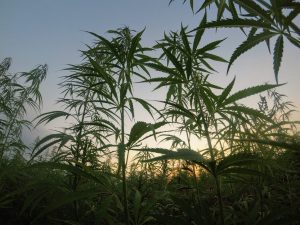
(This is the second part of a two-part story from Hemp Industry Daily examining the developing hemp markets on tribal lands in the United States. Read the first installment here.
For more detail about tribes growing hemp, check out Hemp Industry Daily’s Hemp & CBD Factbook, available for purchase here.)
Hemp and CBD companies have been working with American Indian tribes since the 2018 Farm Bill created a legal pathway for tribes to produce hemp and commercial outlets for selling it.
Some mission-driven food, beverage and CBD manufacturers have developed or are working to set up supply-chain partnerships with tribes to provide fair-trade, living-wage economic impact opportunities to American Indians — communities that are often impoverished and suffer high unemployment rates.
Companies navigate tribal relations
Cultural barriers and a lack of communication can complicate partnerships between tribes and corporations, according to Tim Houseberg, a Cherokee Nation citizen and co-founder and vice president of the Native Health Matters Foundation in Oklahoma.
“Unfortunately, half of the thing about dealing with Indian tribes is the culture … which means great deals are lost all the time because the business men didn’t know the culture,” Houseberg said.
“It also means bad deals are done all the time because of the culture of corruption in Indian tribes.”
And not all companies looking to do business with American Indian tribes have the tribes’ best interests at heart, causing lost money and assets, and sullying tribal nations’ appetites for working with outside commercial entities.
That’s why partnerships must be approached with utmost care, according to Andrei McQuillan, global head of sales and marketing at EcoGen Biosciences, a vertically integrated hemp and CBD company based in Grand Junction, Colorado, that has plans to work with the Turtle Mountain Chippewa Nation and Winnebago Tribe this year.
McQuillan, who is of indigenous heritage, said that some hemp companies may not have the perspective necessary to see how working with tribes can provide hemp partnership opportunities.
“From an agricultural standpoint, these are agrarian cultures historically — they have been farmers through their heritage. They have fertile, vast lands, and their economies have been undersupported by agriculture,” McQuillan told Hemp Industry Daily.
“They also have some cultural social issues … that can be addressed by hemp and hemp-derived products. So it’s a product that not only can benefit their economy, but that can benefit their culture.”
Success stories
Manufacturers like Evo Hemp, a Boulder, Colorado-based CBD and hemp foods company, have committed to paying farmers significantly higher prices, without having to drive up prices for consumer products.
Evo Hemp began working with Alex White Plume, a veteran American Indian hemp producer from the Oglala Sioux Tribe of the Pine Ridge Reservation in South Dakota.
White Plume was impactful in advocating for using industrial hemp as a way to revitalize his community, which is still in one of the most impoverished areas in the country, with an 87% unemployment rate and an average adult life span of 55 years old, according to Ari Sherman, Evo Hemp co-founder.
The reservation had previously been targeted and raided for growing hemp in the late 90s.
“We found this great partnership with Alex where he would be able to have him and his family cultivate the hemp right there on the reservation, and we would create supply contracts that would allow them to get a significantly higher amount of income per acre, even than the CBD farmers, in competing states,” Sherman said.
Even after the CBD wholesale prices have plummeted significantly, Evo Hemp still maintains its mission to pay a fair market price to tribal hemp producer, paying five times the average price for CBD oil produced by its native partners to help them set up the production infrastructure needed, Sherman said.
“It’s still a very labor- and cash-intensive business, and because of the commodities market of hemp right now, it’s kind of plummeted,” he said.
“We’re in it for the story and we want this to be a big success and watch the Pine Ridge reservation get out of that No. 1 spot of the most impoverished community. … We want to make a real economic impact.”
Marketing benefits
The partnerships with tribes also benefit brands at the consumer level because their stories resonate both with retail product buyers and consumers.
American consumers, especially younger demographics, are “voting with their dollars” and gravitating more toward companies that focus on the “triple bottom line” of profit, people and planet.
They want to support brands that help to build a new supply and support economic development for indigenous populations, according to Eric Schnell, cofounder of BeyondBrands, which produces mood33 hemp-infused herbal teas and sources hemp produced through Evo Hemp’s tribal partners.
“One thing I’ve learned about being on the mission-based side of the food and beverage industry for two decades and data coming out the past few years on millennials … is that at this point 85% of consumers or more that are asked their opinion if they would pay a premium for a product that was based on a fair trade or mission based supply chain, the answer is they would,” Schnell told Hemp Industry Daily.
Laura Drotleff can be reached at [email protected]